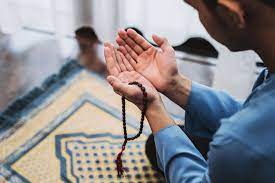In the heart of the United Arab Emirates, the sacred month of Ramadan unfolds a captivating tale of tradition, family, and evolving customs across three generations. This profound exploration not only unveils the essence of Ramadan but also delves into the cultural shifts and enduring values that have woven through time.
Nahla Abu Dheis, a venerable 74-year-old, warmly recounts a bygone era when the anticipation of iftar was met with the comforting sounds of chopping and the fragrant aromas of meticulously prepared dishes. In her reminiscences, she vividly portrays a simpler time, where every sweet and dish was a labor of love, reflecting a woman’s unwavering dedication to family.
Originally from Palestine and now a grandmother to 14 children, Nahla nostalgically reflects on the simplicity of Ramadan in her youth. “Our homes were modest, our tables were simple, but our hearts were full of joy and gratitude,” she shares.
However, her reflections carry a tinge of sorrow as she discusses the transformation of Ramadan’s portrayal on television. “Ramadan TV shows used to carry messages of virtue and patience,” she adds. “Now, it saddens me to see how some shows have become commercialized, drifting from the true meaning of this holy month.”
Saeed Nouri Al Tareefi, 76, Nahla’s husband, brings forth a different perspective, focusing on the communal and spiritual aspects of Ramadan. Having moved to Abu Dhabi in 1969 after his family’s displacement from Palestine, Saeed fondly recalls the sounds of the cannon at sunset and the mesmeric drumbeat of the Mesaharati, signaling joy and unity.
“For me, these memories are bittersweet reminders of a time when the anticipation of Ramadan was akin to awaiting a cherished guest,” he reflects. “It troubles me that such traditions are fading away.”
Dalia, their 49-year-old daughter, stands as a bridge between tradition and modernity. Growing up in the UAE, she witnessed the evolution of Ramadan celebrations and the emergence of suhoor tents. Yet, she remains steadfast in upholding the core values instilled by her parents.
Ramadan should remain a time dedicated to Allah and family ,” Dalia emphasizes. “Despite the appeal of suhoor tents and breaking fast in restaurants, the true essence lies in simplicity and devotion.”
Judy Afanna, Dalia’s 20-year-old daughter, represents the younger generation’s nuanced approach to Ramadan, blending tradition with contemporary customs.
“Ramadan decorations, suhoor tents, and special clothes add a unique dimension to our celebrations,” Judy observes. “But the essence, as taught by our grandparents and mother, remains intact in my heart.”
As Judy reflects on the differences in iftar preparation between her generation and her forebears, she notes, “My grandmother’s generation invested hours in the kitchen, preparing meals from scratch. I know how to cook, but I don’t unless I have to.”
“My grandparents instilled in us the values of Ramadan from a young age,” she continues. “While the ways we celebrate may have evolved, the core principles remain unchanged.”
This multi-generational narrative of Ramadan in the UAE weaves a tapestry of change and continuity, a journey through the simplicity of the past, the communal spirit that once thrived, and the challenges posed by modernity. Through the voices of Nahla, Saeed, Dalia, and Judy, we witness the evolving landscape of Ramadan, where tradition meets the demands of a rapidly changing world. As the family reflects on their experiences, it becomes evident that while external aspects may shift, the essence of Ramadan, deeply rooted in faith, family, and tradition, endures across generations.
Read also Dubai Earns Top Spot as One of the World’s Least Congested City, According to TomTom

